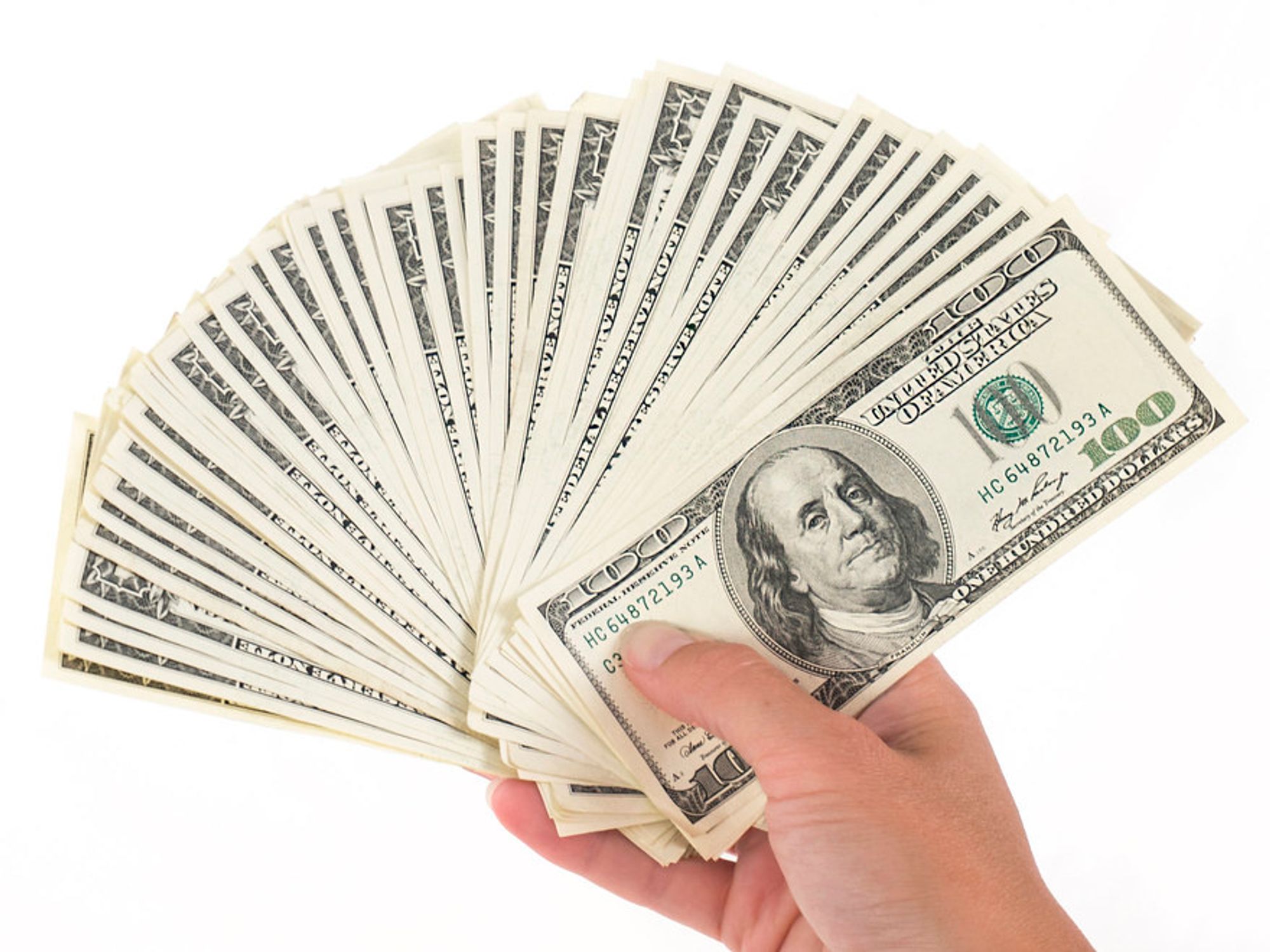"There is a Money Grab Going On" Should Startups Apply for Taxpayer-Funded Aid?
Ben Bergman is the newsroom's senior finance reporter. Previously he was a senior business reporter and host at KPCC, a senior producer at Gimlet Media, a producer at NPR's Morning Edition, and produced two investigative documentaries for KCET. He has been a frequent on-air contributor to business coverage on NPR and Marketplace and has written for The New York Times and Columbia Journalism Review. Ben was a 2017-2018 Knight-Bagehot Fellow in Economic and Business Journalism at Columbia Business School. In his free time, he enjoys skiing, playing poker, and cheering on The Seattle Seahawks.

There is still considerable confusion about whether venture-backed startups are eligible to apply for the $349 billion in forgivable loans being furiously doled out by the Small Business Administration. But there's also another more complicated ethical question being debated on social media and within the startup community: Should they apply?
"VC backed companies already have so many advantages over bootstrapped [small businesses]...they don't need another one paid for by taxpayers," tweeted David Jackson, founder and CEO of FullStack Labs, a Sacramento-based software consultancy. "VC's own these companies...time for them to put their money into their companies."
As one might imagine, Jackson's company is not venture funded. But it's not just those on the outside that are posing the question.
"There is a money grab going on right now by some venture-backed startups that this program absolutely should exclude," wrote Albert Wenger, a partner at Union Square Ventures (USV), a New York-based early stage VC firm focused on investing in disruptive networks. "I urge everyone who is running a venture backed company with a lot of money in the bank and limited COVID-19 impact to think twice about applying for PPP. In the end this is obviously a difficult decision but we are in a crisis where true leadership means thinking beyond one's own concerns."
On the one hand, many VC's and startups argue that businesses are businesses and it should not matter how a company is funded. And even if startups get more capital from VC's, companies may very well not use that money to retain employees, which is a requirement for taking the stimulus money.
Those opposed to venture-backed startups getting aid argue that the government is only giving out finite amount of money, so it's unfair for companies with much easier access to capital be taking funds that could go to struggling mom-and-pop businesses. They also argue that since VC's are in the business of funding risky enterprises and reap a big reward when a company does succeed, it is unfair to expect a taxpayer-funded loan with things go south. Some have mocked what they see as startups trying to contort themselves to be eligible for help:
Startup Founders be like....
Beginning of time to 2020:
We are not a small business. We're a VC backed startup. We're changing the world.
2020 w PPP:
We're a lowly unprofitable cash strapped small business. Please sir. Can I have some more.
— TK Kader (@Tawheed) April 5, 2020
Mark Suster, the most prominent VC in Los Angeles in his capacity as managing partner of Upfront Ventures, has been urging startups to use discretion when applying.
"The PPP is meant for companies under duress," tweeted Suster. "If you're early stage, doing remote development and not really impacted - it's NOT intended for you. Just taking a hand-out of 'public money' intended for people who need it is wrong."
Asked whether he was advising Upfront companies to apply, Suster texted: "I am not advising anybody to apply" and he said he was urging companies to go through a checklist he posted online assessing whether they are in financial trouble, have to lay off employees, and if they qualify.
"It's not 'free money' and should only be taken if truly needed and if you truly qualify," Suster said. "But if you believe it to be the case then apply quickly because it's 'first come, first served.'"

Brian Garrett is co-founder and managing director of CrossCut Ventures.
Courtesy Crosscut Ventures
Brian Garrett, co-founder and managing director of the early-stage fund, CrossCut Ventures, said he is still working through the qualification criteria with his bankers and lawyers but he anticipates most of his portfolio will seek aid.
"We expect that a very large percentage of our companies, and all startups, will apply for PPP loans to protect their teams and their businesses," he said.
The original wording of the Payroll Protection Program, which was part of the $2 trillion stimulus package designed to keep the economy afloat during the coronavirus, included an "affiliation rule" that would require startups to count all the employees of other startups that their VC investor has backed, likely putting many startups over the 500-employee threshold, even if the companies are completely separate.
The National Venture Capital Association, an industry trade group, has lobbied vigorously for a change to the rules. "Startups are as vulnerable as other small businesses to this economic crisis," NVCA President and CEO Bobby Franklin wrote in a letter to the Treasury Department urging new guidelines.
But Jackson, the CEO who opposes venture-backed startups from applying, says the requirements are not an oversight and that if Congress intended to include venture-backed startups, it would have done so. "The intent of the law is clear," he said.
Jackson said when he thinks about companies that should qualify it is the idled cleaning service or window washers with only a few employees that would normally be servicing his offices.
"The cleaning company doesn't have access to investors," said Jackson. "They don't have any other options. In my view, those are companies that this bill is meant to protect."
He has not decided yet whether his company, which is bootstrapped, will apply for aid. But he's concerned by what he sees as venture-backed companies trying to circumvent the affiliate requirements by rewriting their charters.
"It feels a little funny to me," he said. "There are people who deserve the money and people who don't."
- Should Startups Apply for the Payroll Protection Program? - dot.LA ›
- Venture Capital Reports See Tough Times Ahead For Startups - dot.LA ›
- NBCUniversal Lets Peacock Loose - dot.LA ›
- Bird Says it Never Applied for PPP Loans. - dot.LA ›
- The LA Startups That Applied for Paycheck Protection - dot.LA ›
- The LA Startups That Applied for Paycheck Protection - dot.LA ›
Ben Bergman is the newsroom's senior finance reporter. Previously he was a senior business reporter and host at KPCC, a senior producer at Gimlet Media, a producer at NPR's Morning Edition, and produced two investigative documentaries for KCET. He has been a frequent on-air contributor to business coverage on NPR and Marketplace and has written for The New York Times and Columbia Journalism Review. Ben was a 2017-2018 Knight-Bagehot Fellow in Economic and Business Journalism at Columbia Business School. In his free time, he enjoys skiing, playing poker, and cheering on The Seattle Seahawks.



 Image Source: Northwood Space
Image Source: Northwood Space

 Image Source: JetZero
Image Source: JetZero